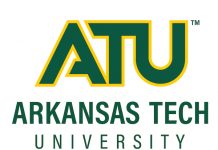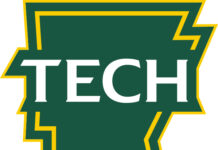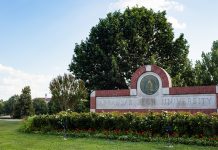Note: Representatives from the International and Multicultural Student Services Office and the English Language Institute at Arkansas Tech University traveled with Dr. John Watson, vice president for academic affairs, to Ofunato, Japan, to conduct an English language camp for one week. Ofunato was devastated by a tsunami in March 2011. EducationUSA, a program of the U.S. State Department, asked Arkansas Tech to hold an English language camp in Ofunato so that school children can improve their English skills and for to establish ties with the community. Below is the final installment of a first-person account of the Arkansas Tech delegation’s trip to Japan written and filed from Ofunato by Brent Hogan, instructor in the Arkansas Tech English Language Institute. It’s been over a week now since the English camp has ended. While I was happy to see my family again, I am ready to go back and help the families of Ofunato. Various memories come to mind when I think of the trip: singing the ABC song to the preschoolers, visiting with the town’s people, preparing lessons every morning. Our students expressed how much they appreciated the camp, and their parents were equally as appreciative, if not more. On our final day, classes were held regularly in the morning and closing ceremonies were in the afternoon. It was very encouraging for all of the teachers as we saw the results of our days spent with the students. Dr. Watson, who had previously assisted each of us in the classroom, was also able to teach math classes to the younger children in the morning. After our sessions ended, many pictures were asked to be taken by the parents and by the older students. If anything, this was a clue as to how much the people of the community liked us being there and that we did our jobs well. We were warned before the camp started that we would have students come and go, but the number of students stayed high throughout our camp. This was immensely gratifying as all of the teachers enjoyed the enthusiasm that each student brought to the classroom. Our goal was achieved. We wanted to enhance the English skills of the school aged children of the community. The tsunami washed away their schools, but it did not wash away their desire to learn and be educated. In the afternoon, Arkansas Tech International and Multicultural Student Services Office Director Yasu Onodera led our closing ceremonies. Each student received a camp certificate for attendance. Then, we lined the hallways and each person shook the other’s hand. This was an easy way to say good-bye to the students that we had grown to care about over the past week. When the ceremony was over, most of the students left the camp by bus. We waved goodbye to them, but I do not believe that it was a final farewell. In some way, I am sure that each of us will travel again to Ofunato and visit our students again. Our group members traveled into the town that evening to have dinner. Ofunato has a temporary food court with several very small restaurants surrounding an outside seating area. A person can sit inside at a very cramped table or enjoy the food at picnic tables in the court. Each menu item is listed with pictures outside the restaurants. While looking for something different to eat, an older man wearing a plaid shirt and baseball cap motioned for me to go into the restaurant. I thought to myself, “Why not,” and went in. The people inside were interested in why a foreigner was in Ofunato. With my limited Japanese, I could not explain well enough, so I used my phone to translate. I then showed pictures of the students I had taught during the week. Their eyes got big when they realized that I had come from the U.S. to teach their local kids. One man began to order dish after dish for me to try. “Good? Try this.” After every first bite, the man would order another dish. I kept thinking of how much food I was going to eat and how my bill was adding up. After about five small dishes, I knew it was time to head back to find the rest of the team. When I took out my wallet to pay, he waved my wallet away. “No no. From Japan.” Before, I had a sense of how I was helping the community, but it did not really hit home until that moment. He and the rest at the table genuinely appreciated of us being there even though they did not have children at the camp. I thanked him. “Arigato gozaimasu.” Everyone at the table smiled and shook my hand as I walked out the sliding door. Two years ago, the people of Ofunato watched the water rise up, kill their family members, and destroy their city. Just after the quake, the United States Armed Forces started Operation Tomodachi, which in English means Operation Friendship. Operation Tomodachi brought water and other supplies to the area within two days of the quake. The U.S. operation lasted two months and brought relief to the city that was debating whether or not it could continue to exist. The IMSSO team feels that we are an extension of that operation of friendship. With our camp, we have built a bridge over the ocean by volunteering our skills to help their community and the next generation that will continue to rebuild the area. Because of this trip, we believe that Arkansas Tech and Ofunato will be forever linked through education and through the positive spirit that the city and the IMSSO team experienced together. Tomodachi.]]>





